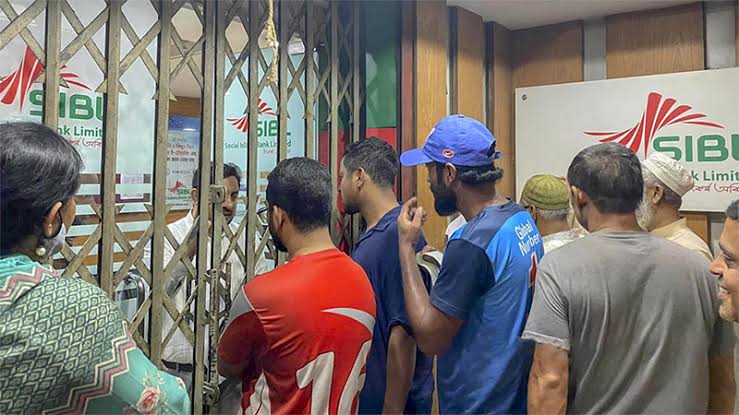Mousumi Islam
Published:2024-12-04 19:05:25 BdST
Customers still face cash crisis at 6 weak banks despite governor’s assurance
Belal Hossain, a Union Bank account holder, experienced days of frustration when attempting to withdraw funds from his account.
Visiting the Uttara branch on multiple occasions, he was repeatedly told to return later due to the unavailability of cash.
Despite assurances from the Bangladesh Bank governor that liquidity would be restored starting Sunday, Belal is left questioning whether he will ever retrieve his savings of Tk10 lakh.
In response to growing liquidity concerns, the Bangladesh Bank injected Tk22,500 crore into six struggling banks – First Security Islami Bank, Social Islami Bank, Exim Bank, National Bank, Union Bank and Global Islami Bank – pledging that depositors could access their money without delay.
During a press briefing, Governor Dr Ahsan H Mansur said, “Tk22,500 crore has been provided, and more support will follow if needed. From Sunday, no customer should leave without accessing their money. However, we urge customers to withdraw only what they require.”
Despite the massive cash infusion, customers visiting branches in Motijheel and elsewhere over the last three days reported ongoing difficulties. Withdrawal limits were being decided case by case, with some banks allowing only small amounts, often as low as Tk5,000, per transaction. At Union Bank branches, some customers were unable to withdraw money altogether.
An official from a struggling bank said, “The central bank is providing limited funds, which we distribute based on availability. Deposits are dwindling, and it’s not feasible to meet all customer demands.”
National Bank, for instance, capped withdrawals at Tk1 lakh per customer, while Social Islami, Global Islami and First Security banks restricted most withdrawals to Tk5,000. The situation has left depositors frustrated and concerned.
Bangladesh Bank spokesperson Husne Ara Shikha acknowledged the situation, urging restraint from depositors.
“There is immense pressure to withdraw deposits and no bank can provide all depositors their money at once. We request customers to withdraw only what is necessary.”
Economist Dr Mustafa K Mujeri, former chief economist of Bangladesh Bank, criticised the approach of injecting printed money into weak banks.
“Providing money to these banks is like keeping them alive with a Coramine injection while ignoring their underlying issues. Identifying and addressing the structural weaknesses of these banks is crucial for long-term recovery,” he said.
Since the fall of the Awami League government, liquidity issues in several banks have worsened. Protests have erupted in various areas as banks struggled to meet withdrawal demands. Initially, Tk8,000 crore was provided to these banks through stronger institutions, but the crisis persisted, prompting the central bank to print additional money.
When assuming office, Governor Ahsan H Mansur vowed to avoid inflationary practices, blaming the previous government for printing Tk60,000 crore. However, within four months, the central bank had reversed its stance, resorting to printing money to stabilise weak banks.
Unauthorized use or reproduction of The Finance Today content for commercial purposes is strictly prohibited.


